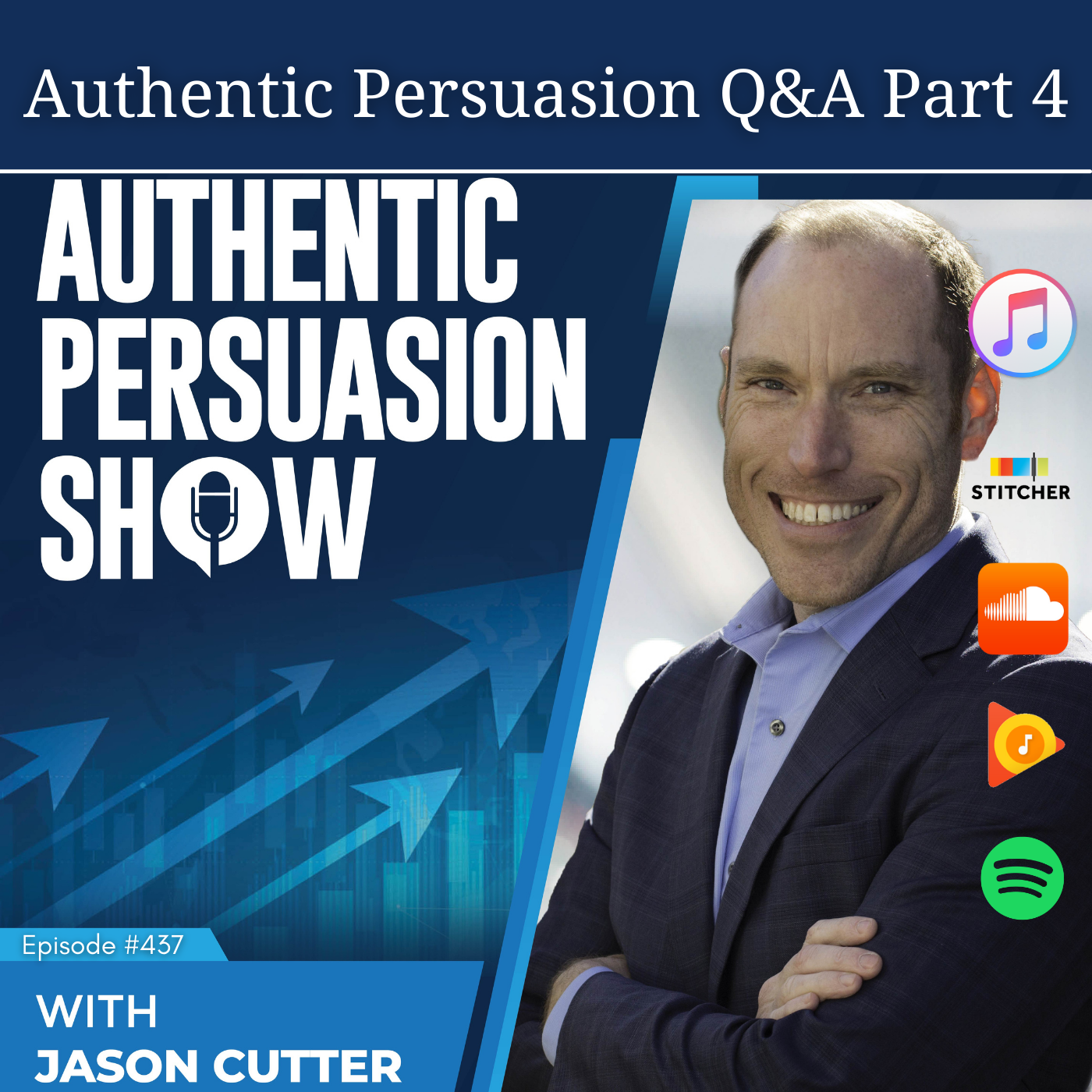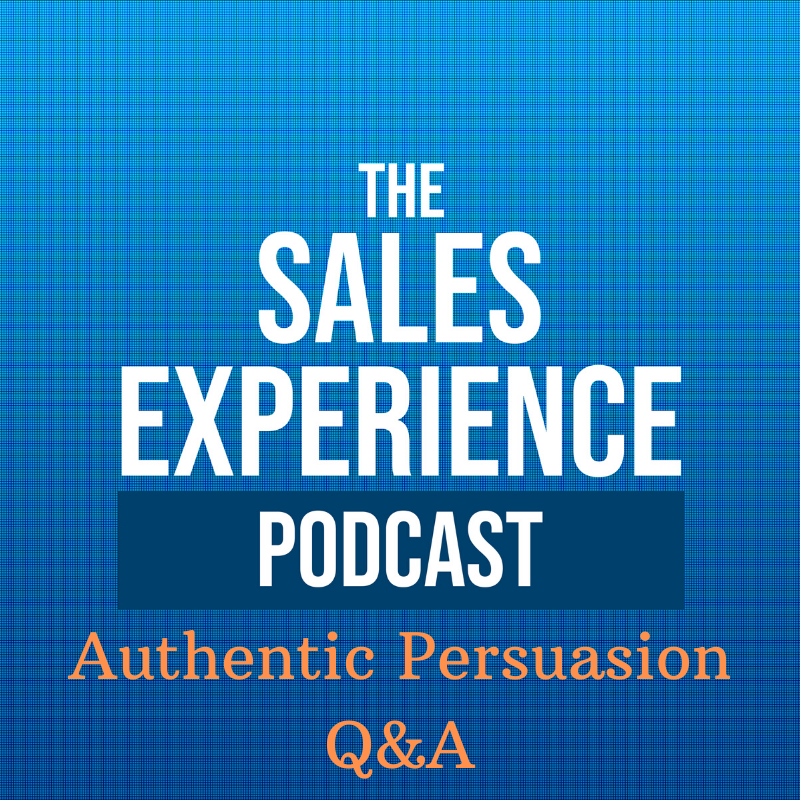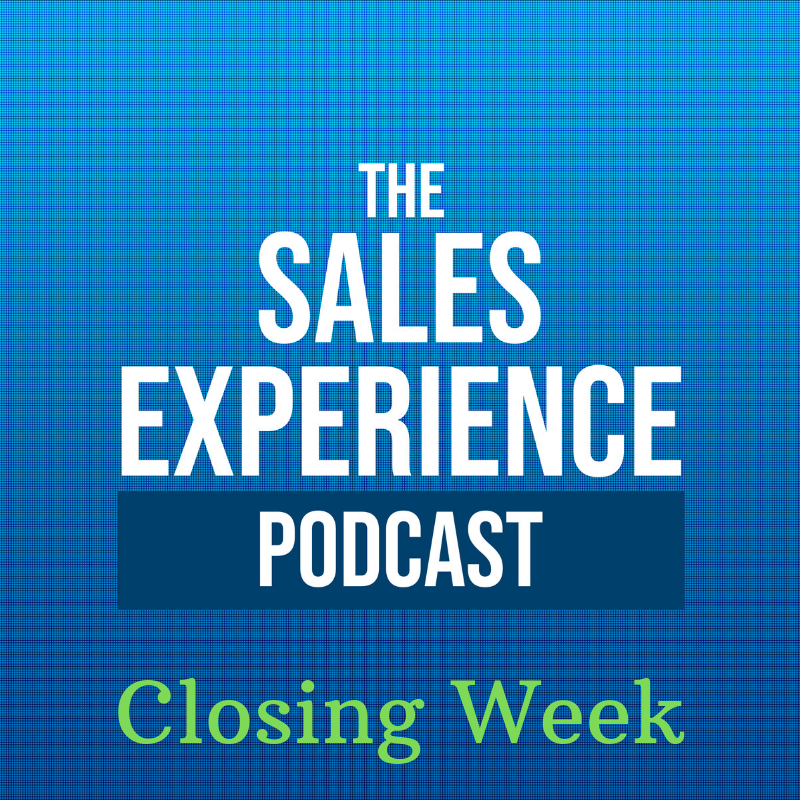Episode Transcript
[00:00:00] Speaker A: Welcome to the authentic Persuasion show. On this episode I want to replay part of a previous show. Maybe you heard the original full length episode and this could be a great refresher and reminder. Or maybe this is your first time hearing this content and the timing could be just right to help you leverage authentic persuasion today in your role, no matter what. Here's to your success.
This is the authentic persuasion show.
[00:00:26] Speaker B: One of the things is that your job is to be that professional. I've talked about this off and on over the, over the previous twelve sessions, is that if we look at another profession, something like the medical profession, what a doctor does, a doctor has a very consultative approach. Now there's a lot of people who say they do consultative sales and they do a consultative approach. But I think it's really important to match that with this process and a mindset, which is the consultative approach is not just about asking questions and finding out how I can help, which is the fundamental basis of what we've done so far, which is I want to know what your need or want is I want to see if I have a solution and then I'm going to tell you the customized solution for that.
[00:01:15] Speaker A: Right.
[00:01:15] Speaker B: That's, it's, it's a common process that sales professionals will follow, not just consultants. Even though you hear consulting, consultative sales process, consultative close. Um, you think it's just for consultants, but anyone who's consulting, and I think as a sales professional, you're always consulting your clients on what's the right path. I talked about it several weeks ago where I even mentioned, like, the power of saying no. When you're consulting somebody and you're like, what you want is not something I can help you with. And here's a different path, and go do this or don't buy at all. I've even had potential clients leads that I've talked to. This is way back in the call center days that we would deal with, which is don't buy or sign up with us and don't sign up with anybody. Stop trying to sign up for this. It's not going to help you. No matter who you talk to. Somebody's going to try to talk you into it. But stop. Stop trying to sign up. You don't need this. Go this other path. Do this other thing or you're doing. Okay, you don't need any help from anybody. Just keep on doing what you're doing. So when I talk about consultative sale and a consultative process, that's what we've been building, and that's not rocket science, that's not anything new. I'm not trying to claim that that's anything different, um, than what others might do. The key, though, is when we get to these steps, especially this hope step, and the next one is that with a consultative process, with a consultative approach and a consultative close, the key is being the authority and being the professional that says, you have this problem. I see this as the solution. I have that solution. And now this is what we need to do. Again, think of the doctor analogy, and I'll pick this up next week when we continue this, which is the doctor goes through their process.
Let's say you have a broken arm and you go into the emergency room and they do their process. They do the x rays, they do the test. They're looking at things. They're looking at your arm that's broke and confirming that it's broke, where it's broke, how it's broke, what does that look like? And then what would the treatment be? Right? And this is what I talked about before, which is that prescription before diagnosis is malpractice. So they're going to go through their process. They're going to determine what the diagnosis is before they give you the prescription. What happens in the ER is they go through that process, they check your arm, they do all their due diligence, essentially, right? If we think about it in a sales term, and then they come back with the diagnosis, and then they give you the prescription and think about what happens in the ER. So the doctor comes back and says, all right, your arm is broken, and here's where it's broken. The next step is that we need to re break your arm because of the situation. Then we need to put in a cast, and then you're going to need to take it easy for six to eight weeks and we'll re examine you. Um, here is a brochure on broken arms. Here is, uh, information on it. Here's my business card. Uh, you also might want to do some research online, so I'm going to send you a follow up email. I'm sure that you have somebody that you want to talk to, to get approval from and, uh, make sure this is okay with. I'm sure you're going to want to do your research. And so, you know, here's the information. Let us know if we can help. I'll follow up with you next week. All right? Uh, no, that is exactly not what they would do. And in fact, if a doctor did that, they would be in so much trouble and it would just people wouldn't know what to do.
[00:04:49] Speaker A: Right.
[00:04:50] Speaker B: So what does a doctor do instead? Well, doctor goes through their process, comes back, arm is broken. You need to re break it. We put it in a cast six to eight weeks. Here's the follow up appointment. Any questions before we begin? Okay, hold on. Here we go. Part of that is this consultative close, that consultative process, which is, I'm the professional. You came to me for help. I diagnosed it. Here's the prescription. Here's what we need to do. Let's go. And that will go into the close that we're going to talk about next week when I continue this and then hit that fifth and final step. But that is the difference. That is the difference between sales professionals who have the mindset of what their duty is. Again, sales is something you're doing for somebody. And with somebody, it's to help them. It's an act of service. And you're getting them from this point right here in their comfort zone, outside of their comfort zone, to change as safely as possible as their guide. And that is so key. And when you do that, it's different than asking for permission. You've got to earn the right to close. In that doctor's example, they have earned the right to make that kind of assumption and move forward. You've got to earn that right in your conversation and doing these steps. That's why I have built the authentic persuasion pathway. The way that I have is because you're earning the right to close the sale as you go through the pathway.
[00:06:12] Speaker A: Right.
[00:06:13] Speaker B: Earning the right is different from asking for the sale. Those are two different things. You always have to earn the right to close and earn the permission in the relationship and the conversation to then make the close or make the sale. Two different things. A lot of people think their job is to vomit a whole bunch of information, facts, figures, features, benefits, and just junk and just throw everything at somebody and then ask for the sale. And so they're hoping for that intersection, and that's not what I want for you to do.
![[751] Consultative Sales Strategy](https://episodes.castos.com/salesexperiencepodcast/images/1728610/c1a-4d8w-49vop3znb7on-hinjmv.png)


